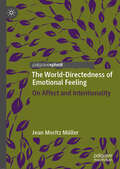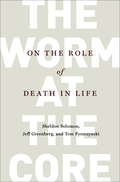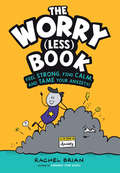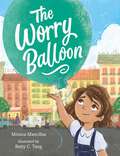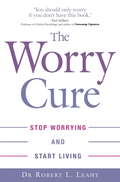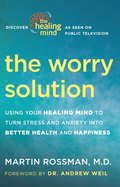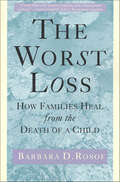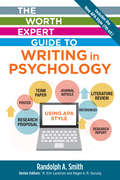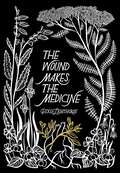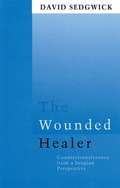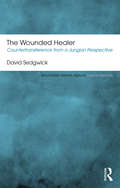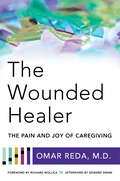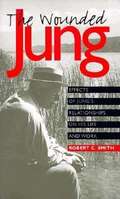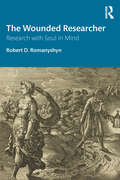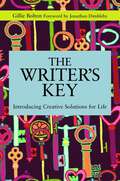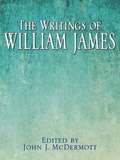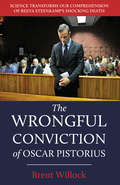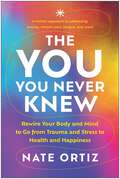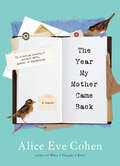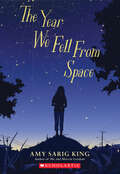- Table View
- List View
The World-Directedness of Emotional Feeling: On Affect and Intentionality
by Jean Moritz MüllerThis book engages with what are widely recognized as the two core dimensions of emotion. When we are afraid, glad or disappointed, we feel a certain way; moreover, our emotion is intentional or directed at something: we are afraid of something, glad or disappointed about something. Connecting with a vital strand of recent philosophical thinking, Müller conceives of these two aspects of emotion as unified. Examining different possible ways of developing the view that the feeling dimension of emotion is itself intentional, he argues against the currently popular view that it is a form of perception-like receptivity to value. Müller instead proposes that emotional feeling is a specific type of response to value, an affective ‘position-taking’. This alternative conceives of emotional feeling as intimately related to our cares and concerns. While situating itself within the analytic-philosophical debate on emotion, the discussion crucially draws on ideas from the early phenomenological tradition and thinks past the theoretical strictures of many contemporary approaches to this subject. The result is an innovative view of emotional feeling as a thoroughly personal form of engagement with value.
The Worldly Philosophers: The Lives, Times and Ideas of the Great Economic Thinkers
by Robert HeilbronerAdam Smith, Malthus, David Ricardo, Karl Marx, Thorstein Veblen, John Maynard Keynes, and more...
The Worlds of Renaissance Melancholy
by Angus GowlandAngus Gowland investigates the theory of melancholy and its many applications in the Renaissance by means of a wide-ranging contextual analysis of Robert Burton's encyclopaedic Anatomy of Melancholy (first published in 1621). Approaching the Anatomy as the culmination of early modern medical, philosophical and spiritual inquiry about melancholy, Gowland examines the ways in which Burton exploited the moral psychology central to the Renaissance understanding of the condition to construct a critical vision of his intellectual and political environment. In the first sustained analysis of the evolving relationship of the Anatomy (in the various versions issued between 1621 and 1651) to late Renaissance humanist learning and early-seventeenth century England and Europe, Gowland corrects the prevailing view of the work as an unreflective digest of other authors' opinions, and reveals the Anatomy's character as a polemical literary engagement with the live intellectual, religious and political issues of its day.
The Worm at the Core: On the Role of Death in Life
by Jeff Greenberg Sheldon Solomon Tom PyszczynskiA transformative, fascinating theory--based on robust and groundbreaking experimental research--reveals how our unconscious fear of death powers almost everything we do, shining a light on the hidden motives that drive human behavior More than one hundred years ago, the American philosopher William James dubbed the knowledge that we must die "the worm at the core" of the human condition. In 1974, cultural anthropologist Ernest Becker won the Pulitzer Prize for his book The Denial of Death, arguing that the terror of death has a pervasive effect on human affairs. Now authors Sheldon Solomon, Jeff Greenberg, and Tom Pyszczynski clarify with wide-ranging evidence the many ways the worm at the core guides our thoughts and actions, from the great art we create to the devastating wars we wage. The Worm at the Core is the product of twenty-five years of in-depth research. Drawing from innovative experiments conducted around the globe, Solomon, Greenberg, and Pyszczynski show conclusively that the fear of death and the desire to transcend it inspire us to buy expensive cars, crave fame, put our health at risk, and disguise our animal nature. The fear of death can also prompt judges to dole out harsher punishments, make children react negatively to people different from themselves, and inflame intolerance and violence. But the worm at the core need not consume us. Emerging from their research is a unique and compelling approach to these deeply existential issues: terror management theory. TMT proposes that human culture infuses our lives with order, stability, significance, and purpose, and these anchors enable us to function moment to moment without becoming overwhelmed by the knowledge of our ultimate fate. The authors immerse us in a new way of understanding human evolution, child development, history, religion, art, science, mental health, war, and politics in the twenty-first century. In so doing, they also reveal how we can better come to terms with death and learn to lead lives of courage, creativity, and compassion. Written in an accessible, jargon-free style, The Worm at the Core offers a compelling new paradigm for understanding the choices we make in life--and a pathway toward divesting ourselves of the cultural and personal illusions that keep us from accepting the end that awaits us all.
The Worried Child: Recognizing Anxiety in Children and Helping Them Heal
by Paul FoxmanThe author discusses different anxiety disorders in children and how to treat them.
The Worry (Less) Book: Feel Strong, Find Calm, and Tame Your Anxiety!
by Rachel BrianThis is a book for people who worry. (So, yeah -- everyone!) We all have a mixture of fun and not-so fun feelings. And everyone feels worried sometimes. But too much anxiety can get in the way. So this book is here to help you identify your anxiety, understand why it's just part of that thing we call life, and equip you with all the tools you need to find calm again.Playfully presented, packed with fun and helpful illustrations, and expertly vetted, author-artist Rachel Brian (co-creator of the viral "Tea Consent" video) delivers a must-have book for anyone who wonders why they worry or how to better live with their anxiety. From recognizing when you're feeling anxious and worried, to taking charge by training your brain and using awesome techniques to help you feel good again, this book will have you worrying less and living more.
The Worry Balloon
by Mónica MancillasOn the first day of school, Isla’s mind plays the what if game. Scary thoughts come, the world goes dark, andeverything feels stormy. With Mami at her side, Isla takes a deep breath and blows her worries away in a big balloon. But as school gets closer, Isla’s worries come back like a tornado. Mami encourages her to imagine something happy, and Isla remembers there’s nothing she can’t handle.The storm might come again, but for now, her mind is quiet.In this thoughtful and reassuring picture book, Mónica Mancillas’s text and Betty C. Tang’s illustrations show how one child experiences anxiety and worry, providing different tools to practice mindfulness and strengthen one’s mental health.
The Worry Cure: Stop worrying and start living
by Dr Robert L. LeahyDo you worry that you'll say the wrong thing, wear the wrong outfit, or look out of place? Or maybe that you'll make a mistake at work, disappoint your partner, or overlook a serious health problem? Or perhaps you just worry too much - constantly running what-if scenarios through your head? Of course you do - we all do. Worry is a central issue in many people's lives; 38% of people say they worry every day. In this groundbreaking book, Dr Robert Leahy offers new insight, advice and practical techniques for everyone who has ever had a sleepless night. Using the most recent research and his 25 years of experience treating patients, Dr Leahy helps us understand why we worry and how best to defeat it. In his easy-to-follow-programme, he tells you how to: Identify productive and unproductive worry; Accept reality and commit to change; Turn 'failure' into opportunity; Use your emotions rather than worry about them. Combining stories from his practice with unique approaches to reducing worry, The Worry Cure is an essential companion for everyone who is anxious.
The Worry Solution: Using Breakthrough Brain Science to Turn Stress and Anxiety into Confidence and Happiness
by Martin RossmanOur brains are hardwired for worry. While our ancient ancestors had a legitimate use for the fight-or-flight instinct, today what was once a matter of survival has become the stuff of sleepless nights and anxiety-filled days. At its best, worry is a way for us to turn over and solve a problem in our minds. But for many, worry becomes a negative cycle of unnecessary suffering. Now, based on cutting-edge brain science, Dr. Martin Rossman has developed a program to help you break the worry cycle--and transform worry into a positive force. In The Worry Solution, Dr. Rossman gives you an easy-to-follow plan for taking control of your reactions to stress and anxiety. Using proven clinical techniques that harness the very power of imagination that creates worry and stress, you will learn the five basic skills that will help you to clarify your worries, sort them into those you can and cannot do something about, and tap the wisdom buried deep within you to help solve problems creatively. At the heart of the program is the use of guided imagery and creative visualization, techniques that invigorate the emotional and intuitive parts of the brain to add to and enhance logical intelligence. Not only can you start to see a change in your stress levels immediately, but with regular practice, you may literally alter the worry pathways in your brain--and "hardwire" yourself for calmness and clarity. Grounded in cutting-edge science and wonderfully accessible, The Worry Solution is a powerful and practical guide to living your best life--healthier, happier, and free from unnecessary stress.From the Hardcover edition.
The Worry Solution: Using Your Healing Mind to Turn Stress and Anxiety into Better Health and Happiness
by Andrew Weil Martin RossmanOur brains are hardwired for worry. While our ancient ancestors had a legitimate use for the fight-or-flight instinct, today what was once a matter of survival has become the stuff of sleepless nights and anxiety-filled days. At its best, worry is a way for us to turn over and solve a problem in our minds. But for many, worry becomes a negative cycle of unnecessary suffering. Now, based on cutting-edge brain science, Dr. Martin Rossman has developed a program to help you break the worry cycle--and transform worry into a positive force. In The Worry Solution, Dr. Rossman gives you an easy-to-follow plan for taking control of your reactions to stress and anxiety. Using proven clinical techniques that harness the very power of imagination that creates worry and stress, you will learn the five basic skills that will help you to clarify your worries, sort them into those you can and cannot do something about, and tap the wisdom buried deep within you to help solve problems creatively. At the heart of the program is the use of guided imagery and creative visualization, techniques that invigorate the emotional and intuitive parts of the brain to add to and enhance logical intelligence. Not only can you start to see a change in your stress levels immediately, but with regular practice, you may literally alter the worry pathways in your brain--and "hardwire" yourself for calmness and clarity. Grounded in cutting-edge science and wonderfully accessible, The Worry Solution is a powerful and practical guide to living your best life--healthier, happier, and free from unnecessary stress.From the Hardcover edition.
The Worst Loss: How Families Heal from the Death of a Child
by Barbara D. RosofThe death of a child is like no other loss. Barbara D. Rosof's The Worst Loss will help families who have experienced this to know what they are facing, understand what they are feeling, and appreciate their own needs and timetables.
The Worth Expert Guide to Writing in Psychology: Using APA Style
by Randolph SmithFilled with practical tips and advice, this brief and easy-to-use guide helps psychology majors write more effectively in the discipline. It’s a go-to resource for producing all kinds of writing projects (term papers, annotated bibliographies, literature reviews, research proposals, lab/research reports), with specific guidance on planning projects, developing topic ideas, avoiding grammatical errors, and formatting in APA style. This is a multipurpose book that will serve students throughout the academic and professional careers in psychology. The author provides suggestions for how to budget time for writing, how to plan writing sessions, and tips about problematic grammatical issues. The text addresses topics such as developing an idea for writing and explores the major types of writing assignments that students may face (i.e., term paper, annotated bibliography, literature review, research proposal, and lab/research report). The author also points out important differences in APA formatting for various types of assignments. This is a multipurpose book that will aid students regardless of the type of writing assignment they face—a good book to keep for all of their psychology career.
The Wound Makes the Medicine: Elemental Remediations for Transforming Heartache
by Pixie LighthorseA Simon & Schuster eBook. Simon & Schuster has a great book for every reader.
The Wounded Healer: Counter-Transference from a Jungian Perspective (Routledge Mental Health Classic Editions)
by David SedgwickCountertransference is an important part of the analytical process. It is concerned with the analyst's emotional response to the patient. As such, it can be a particularly difficult aspect of the analytical setting and especially so because of the threat of possible sexual involvement with the patient. At present there is little available on this difficult topic. Jungian analyst David Sedgwick tackles the subject bravely and shows how to use the countertransference in a positive way. The result is one of the finest Jungian clinical texts of recent years.
The Wounded Healer: Countertransference from a Jungian Perspective (Routledge Mental Health Classic Editions)
by David SedgwickIn the years since the publication of The Wounded Healer, countertransference has become a central consideration in the analytic process. David Sedgwick’s work was ground-breaking in tackling this difficult topic from a Jungian perspective and demonstrating how countertransference can be used in positive ways. Sedgwick’s extended study of the process candidly presents the analyst’s struggles and shows how the analyst is, as Jung said, "as much in the analysis as the patient." The book extends Jung’s prescient work on countertransference to create a dynamic view of the analyst-patient interaction, stressing the importance of the analyst’s own woundedness and how this may be used in conjunction with the patient’s own. Sedgwick begins with a discussion of the need and justification for a Jungian approach to countertransference, then reviews Jungian theories and presents detailed illustrations of cases showing the complexity of transference-countertransference processes in both the patient and the analyst, and concludes with a model of countertransference processing. This Classic Edition also includes a new introduction by the author. It will be an important work for Jungian analysts, psychotherapists and other clinicians and students interested in the struggles of the therapeutic process.
The Wounded Healer: The Pain and Joy of Caregiving
by Omar RedaFinding meaning in trauma work, as a traumatized healer yourself. The act of caregiving is physically exhausting and emotionally draining, yet caregivers describe it as rewarding and gratifying. Prolonged exposure to human suffering, however, is not without risks?caregivers report high rates of burnout and poor quality of life. Many care providers believe that their feelings do not matter; that they should ignore their pain, brush off their trauma, wipe away their tears, and just “suck it up.” Here, Omar Reda a Libyan-born American psychiatrist who, as an emergency physician and trauma counselor provided care for medical staff caring for victims of trauma, calls upon other healers to break free from cycles of secrecy, toxic stress, and silent suffering so they can continue to empower and inspire those in their care. Filled with poignant first-person stories and clinical case studies, this book is an impassioned plea for psychosocial trauma care that prioritizes the health of both client and healer.
The Wounded Jung: Effects of Jung's Relationships on His Life and Work
by Robert C. SmithShows how Jung's interest in the healing of the psyche was rooted in the conflicts of his own childhood. Explores his relationships with his parents, with Freud, and with the various women in his life and showing how they influenced his ideas on religion, alchemy, psychology as myth, and the reinterpretation of evil. Based on archival sources, interviews with Jung's intimates, and correspondence. For those interested in the connection between psychology and religion. Annotation c. by Book News, Inc., Portland, Or.
The Wounded Researcher: Research with Soul in Mind (Studies In Archetypal Psychology)
by Robert D. RomanyshynThe Wounded Researcher addresses the crises of epistemological violence when we fail to consider that a researcher is addressed by and drawn into a work through his or her complexes. Using a Jungian-Archetypal perspective, this book argues that the bodies of knowledge we create degenerate into ideologies, which are the death of critical thinking, if the complexity of the research process is ignored. Writing with soul in mind invites us to consider how we might write down the soul in writing up our research.
The Wounds Within: A Veteran, a PTSD Therapist, and a Nation Unprepared
by Joshua S. Goldstein Mark I. Nickerson<p>As America’s longest wars end, hundreds of thousands of veterans and their families struggle with post-traumatic stress disorder (PTSD). <i>The Wounds Within</i> follows the case of Marine Lance Corporal Jeff Lucey, who deployed early in the Iraq War, battled PTSD after returning home, and set his family on a decade-long campaign to reform the Veterans Affairs system and end the stigma around military-related mental health issues, with the perspective of Jeff’s psychotherapist, Mark Nickerson, an internationally recognized expert on trauma treatment. <p>Recounting one family’s story as well as case histories of Nickerson’s veteran clients, the book explains PTSD and the methods by which it can be treated. It also explores the challenges and frustrations facing returning veterans from Iraq and Afghanistan—from belated reforms to overwhelmed military families to civilians who don’t know what to say beyond “Thank you for your service.”</p>
The Writer's Key: Introducing Creative Solutions for Life
by Gillie BoltonThe Writer's Key is a complete beginner's guide to writing for self-reflection and personal development. Creative writing can deepen our understanding of ourselves and our lives. This book unlocks the potential for gaining these insights, widening perspectives, finding new positivity, increasing confidence and reducing stress through writing. It: - introduces creative writing as a very enjoyable process for enabling reflective personal and professional development - provides strategies and inspiration for getting started, continuing despite hesitations and getting the most out of writing - features uplifting accounts of individuals' successful use of the Key for self-exploration and development through creative writing. The Writer's Key assumes no prior writing experience and will inspire and encourage anyone who wants to tell and explore their story, whether they feel trapped by issues at work or home because of loss, trauma or relationships, or simply want to make more of life.
The Writings of William James
by John J. McdermottA Modern Library collection of writings by the American psychologist, philosopher, and writer William James. His writings touch on themes of psychology, religion, free will, and pragmatism.
The Wrongful Conviction of Oscar Pistorius: Science Transforms our Comprehension of Reeva Steenkamp’s Shocking Death
by Brent WillockJust when the world thought Oscar Pistorius’ meteoric rise to Olympic glory and international celebrity had terminated abysmally in prison, Brent Willock’s scientific perspective reopens this gripping narrative for an astonishing re-view.Olympian Oscar Pistorius’ spectacular assent to fame ground to a screeching halt in the wee hours of Valentine’s Day, 2013. Hearing a sound emanating from his bathroom, he grabbed his pistol and he stumbled to the washroom, screaming at the intruders to leave. Fearing someone was about to emerge to harm him and his girlfriend, Reeva, he fired four bullets into the bathroom. Soon he realized he had killed his lover. Horrified, he summoned the authorities. The investigating detective believed this was yet another case of an escalating argument where a man murdered his partner. World opinion is split. Some believe Oscar. Others are convinced he committed a despicable crime of passion.Distinguished clinical psychologist Brent Willock brings an entirely new perspective to bear on these horrific events: that Oscar’s horrific actions occurred while he was in a state of paradoxical sleep, also known as parasomnia. Throughout this book, Willock uses scientific scrutiny and legal precedence to resolve the crucial anomalies surrounding the Oscar Pistorius trial. Willock also discusses how mental health experts and the defense team might have overlooked the hypothesis of parasomnia that could have exonerated Oscar.Millions who followed the Blade Runner’s astonishing achievements, uplifted and inspired by his triumph over physical adversity, were crushed by his precipitous plunge from grace. They were baffled. Even Oscar himself, in a television interview shortly before his sentencing, achingly asked, “I always think, How did this possibly happen? How could this have happened?” At last, Willock’s elegant work responds to these poignant questions that have so plagued and pained Reeva’s family, friends, Oscar, and, indeed, the world.
The YOU You Never Knew: Rewire Your Body and Mind to Go from Trauma and Stress to Health and Happiness
by Nate OrtizYour body is not broken. It is designed to send you clear messages when your life is out of balance. Let this comprehensive, compassionate guide set you on the path toward a brighter tomorrow.Trauma and stress don&’t just affect the mind. They affect the whole body. Which is why healing that trauma, and the physical health issues it leads to, requires a holistic approach. Developed from health coach Nate Ortiz&’s personal experience with overcoming trauma and succeeding against the odds, along with his professional work with thousands of celebrity and everyday clients, The YOU You Never Knew is an empowering tool for those on their own journey of healing and transformation. Grounded in the neuroscience of trauma and stress, Nate&’s system will teach you how to balance mind, body, and spirit, eliminate pain, and thrive—by learning: How trauma shapes your perceptions, thoughts, and choices—and how to rewrite those patterns Simple ways to regulate your parasympathetic nervous system for reduced stress and improved sleep, digestion, and immunity Proven practices that correct muscle imbalances to improve posture, reduce pain, and regain energy Strategies for improving bodily awareness, to help you better recognize what your body needs to heal Take control of your well-being and become the best version of yourself—one free of the stress, fatigue, anxiety, and health issues that plague you. Discover the true you, beyond your past hurts, hidden beliefs, and unhealthy habits. Discover the you you never knew.
The Year My Mother Came Back: A Memoir
by Alice Eve Cohen“A riveting journey.” —Julie Metz, author of Perfection “A perfect book. I want to tell everyone, every mother, every daughter, to read it.” —Abigail Thomas, bestselling author of A Three Dog LifeFor the first time in decades I’m remembering Mom, all of her--the wonderful and terrible things about her that I’ve cast out of my thoughts for so long. I’m still struggling to prevent these memories from erupting from their subterranean depths. Trying to hold back the flood. I can’t, not today. The levees break. Thirty years after her death, Alice Eve Cohen’s mother appears to her, seemingly in the flesh, and continues to do so during the hardest year Alice has had to face: the year her youngest daughter needs a harrowing surgery, her eldest daughter decides to reunite with her birth mother, and Alice herself receives a daunting diagnosis. As it turns out, it’s entirely possible for the people we’ve lost to come back to us when we need them the most. Although letting her mother back into her life is not an easy thing, Alice approaches it with humor, intelligence, and honesty. What she learns is that she must revisit her childhood and allow herself to be a daughter once more in order to take care of her own girls. Understanding and forgiving her mother’s parenting transgressions leads her to accept her own and to realize that she doesn’t have to be perfect to be a good mother. “Alice Eve Cohen’s warm, witty, wise memoir is an elixir of love. It captures the struggles of every woman who ever wanted to be a better mother or daughter. Read it and weep, and laugh, and love.” —Nancy Bachrach, author of The Center of the Universe “Funny, painful, absurd, and heartwarming . . . Alice’s struggle to accept her imperfect self is a loving message tomothers who struggle to live life with grace. A beautiful book.” —Julie Metz, New York Times bestselling author of Perfection “Cohen navigates what was a perfect storm of a year . . . What she made of this year is a book so honest, so moving, and ultimately so wise that it is a privilege to take the journey with her.” —Abigail Thomas, bestselling author of A Three Dog Life “I love, love, love this book. It’s so rich, so real, and so moving . . . An astonishingly wonderful book—I was enthralled.” —Caroline Leavitt, bestselling author of Pictures of You “Compassionate, compelling, and told in luscious prose that practically begs you to sink in and linger, Cohen’s imaginative story and its fascinating characters will stay with you long after you’ve turned the last page.” —Jessie Sholl, author of Dirty Secret
The Year We Fell From Space
by Amy Sarig KingLiberty Johansen is going to change the way we look at the night sky. Most people see the old constellations, the things they've been told to see. But Liberty sees new patterns, pictures, and possibilities. She's an exception. Some other exceptions:Her dad, who gave her the stars. Who moved out months ago and hasn't talked to her since.Her mom, who's happier since he left, even though everyone thinks she should be sad and lonely.And her sister, who won't go outside their house. Liberty feels like her whole world is falling from space. Can she map a new life for herself and her family before they spin too far out of reach?
